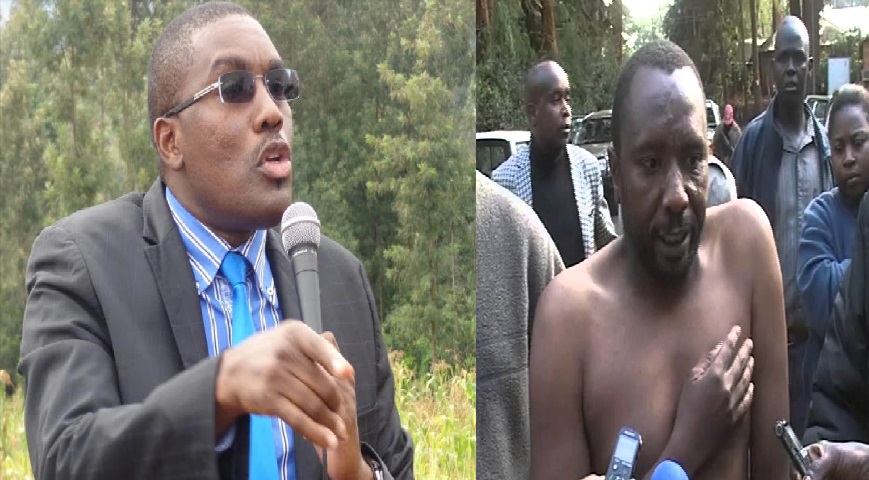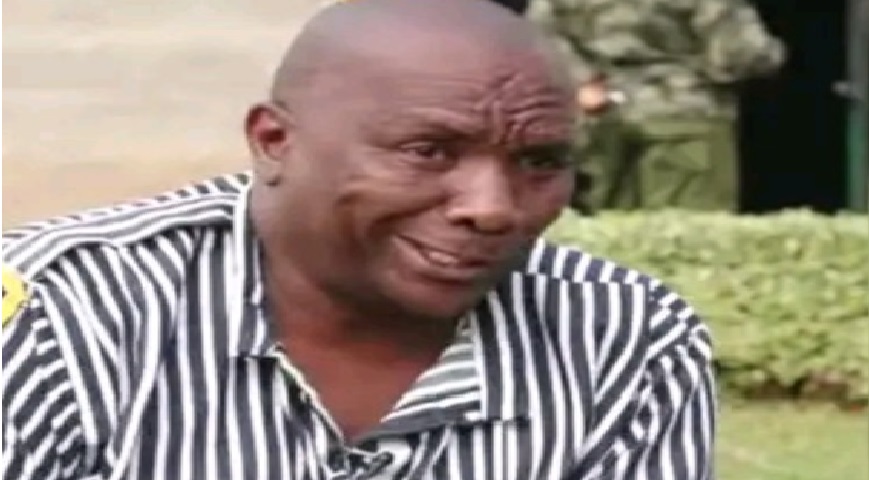On July 27, 2014, tragedy struck the family of former Member of Parliament for Mukurwe-ini, Mr. Kabando wa Kabando, when his younger brother fatally attacked him and their mother, Rose Wachera, who was 70 years old, by cutting her neck. Shock and mourning enveloped the household in the village of Ngamwa, Nyeri County. The suspect, identified as Caesar Thiari Mwangi, faced severe consequences as enraged villagers subjected him to a severe beating.

However, before he faced dire consequences, the police intervened and saved Thiari from being lynched. Subsequently, Thiari was charged with murder, and after a trial, he was found guilty in November 2018. Despite this conviction, he was granted a presidential pardon (PP). The presidential pardon, also known as Presidential Pardon (PP) in English, is typically extended to two categories of individuals: those who committed serious crimes while under the age of 18, and those who committed offenses while in a state of mental confusion.
Throughout the trial, Thiari maintained that he was not of sound mind during the incident, attributing his impaired mental state to years of drug and alcohol abuse.
Did you read this?
"I had that bad experience with narcotics. I was a smoker of marijuana and cigarettes, an alcoholic and also a user of other dangerous drugs such as heroin and cocaine. For sure it was not me but the devil who was controlling my mind," he said defending himself. His detention can only be relieved if President William Ruto or anyone else in his life, signs a pardon and is released.
"But there is hope because my case asking the President to forgive me will be decided on June 27, 2024, and I have great expectations that the court may see my cries and recommend that President Ruto release me," Thiari told Taifa Today in King'ong' prison o located in Nyeri County where he continues to be detained. Thiari said that he has been reconciling with his family "and even my brother Kabando has been visiting me here in prison and in our conversations, we have forgiven each other and we never have a grudge".
He said that while in prison, he has come to regret his act of taking his mother's life. "But I came to understand later that when I was told to carry out the brutality, I did not know myself or my surroundings," he said. He said that his upbringing in the coastal area where he also studied gave him an understanding of drug networks and finally in his later life, he found himself with addiction which he now says he has struggled with in his 10 years in prison.
"At the moment I don't have that experience. I understand myself very well and even the bosses of this prison have sincerely congratulated me for my courage to take the step to change and have a high level of discipline," he said. Strange and ironic is that, Thiari carried out the act of murder under the pressure of narcotics while he was also studying and graduating, a senior counselor at the manager level in one of the institutions to help drug victims recover.
"I was a consultant in several organizations in Nakuru, Nyandarua, Homa Bay and Kiambu Counties while my role was to convince others not to ever dare to fall into the pit of narcotics. But I fell myself while holding my Bible of advice to others," he said. He said that after recovering from the addiction while in prison, he came to understand that he had committed the brutal act of "cutting my mother's neck using a sword and I always regret it".
He advised drug users wherever they are to know that "that addiction leaves you with many loopholes for self-development" and eventually leads the victim to such a hole. "When a person is in the hole I'm in, the situation of self-preservation is a losing card," he said.
Thiari said that if he gets out of jail, he will obey the law. "Also, I will aim to finish publishing my book which I am writing with the title 'I lost everything but I found myself'.









